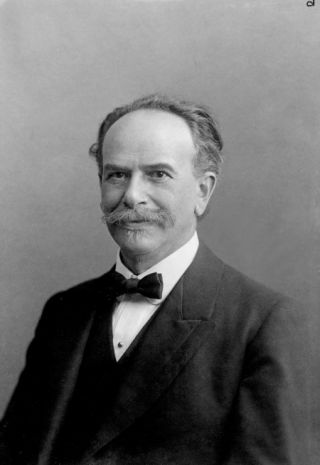Cross-Cultural Psychology
Psychology’s Scientism and Anthropology’s Anti-Science
Whatever happened to a scientific approach to understanding culture?
Posted October 7, 2014

Franz Boas (1858 – 1942), often considered the father of American anthropology, studied culture scientifically.
Over the past few decades, the scientific study of culture has become marginalized, in very different ways, in both psychology and anthropology. As a result and by default, “scientific” attempts in both fields to understand culture have come to mean reductionist biological explanations. Social phenomena exist at a social level of organization; but scientistic and anti-science trends impede progress in understanding them.
***
The study of culture in psychology has its historic roots in social psychology, going back at least to the work of Otto Klineberg in the 1930s, and including contributions by Harry Triandis and John Berry, editors of the first multi-volume Handbook of Cross-Cultural Psychology. As psychology and its sub-disciplines grew, the study of culture was extruded from social psychology, which maintained its focus on topics like attitudes, interpersonal attraction, group dynamics, and conformity. Only a small number of social psychologists are primarily interested in culture, and few universities offer courses in cross-cultural psychology.
The great majority of psychologists are in applied fields (mainly clinical, counseling, and school), which are licensed professions; and state licensing boards defer to American Psychological Association standards in evaluating training curricula. APA requires training in the various fields of psychology, including social psychology--which no longer includes the study of culture. Applied psychologists do learn about some American social issues--such as the effects of discrimination on minority group test performance. But they do not learn what those minority groups are like (as opposed to how they are mistreated)--much less how American culture compares to other cultures around the world.
Meanwhile, in experimental fields, psychologists are motivated to do controlled experiments aimed at making causal inferences about general processes like learning or cognition. They eschew field methods of observation and description because they do not lead to causal inferences and because they do not generalize to all humans (or primates, or even animals). This search for universal generalizations, which has been called “physics envy,” naturally leads to an avoidance of culture, because cultures vary so widely. Instead, it looks for underlying biological causes, for example in genes or the nervous system.
As a result, the debate in psychology has implicitly become one of science versus culture, with science, by default, coming to mean biology--evolutionary psychology and behavior genetics--and culture referring to the ways minority groups (usually limited to just minority groups in the United States) are mistreated (from social disadvantage to extermination). The scientific study of culture is missing from the scene.
On those occasions when psychologists actually decide to do research on culture (or to include a cultural variable in their study) they often make elementary errors because of their lack of relevant training. For example, they might gather comparative questionnaire data from a number of cultures (where the tests hadn’t been developed) without knowing anything about those cultures or whether the dimensions measured by the questionnaires actually exist in them. It’s like comparing ten cultures on a test of Americanism. This fallacy is known as an imposed etic.
Because psychologists emphasize experimental methods, which require many subjects, they are unaware of issues related to field research. For example, you only need one informant--instead of many subjects--to tell you that the Spanish word for avocado is aguacate. This is because cultural information is shared--in order for people to communicate, they need words to have the same meaning. But cultures vary, so you need cultural information about your informant--information of a kind that is generally missing from Method sections of psychology articles. Cultural information allows you to interpret your data. In this case, you need to know that the informant is from Mexico. Because, in Peru, the word is palta.
In psychologists’ terms, the cultural information allows you to know how far you can generalize your results. If you don’t obtain and record cultural information about research participants, you have no idea of how broadly your results can be generalized. And if you are investigating biological explanations for behavior, so that you don’t bother to collect cultural information about participants because it seems irrelevant, you are sure not to run into cultural insights about your data. What you don’t know can’t hurt you.
***
Anthropology’s problem with science is a quite different one, and can be traced to the influence of postmodernism on the study of culture, and a confounding of political attempts to better the lot of oppressed peoples with the scientific mission of describing and understanding their cultures. Postmodernists reject the possibility of a scientific understanding of culture; and they confuse anthropologists’ personal responsibility to the peoples they study with anthropologists’ scientific responsibility to make sense of and communicate an understanding of their cultures.
Traditionally, the academic discipline of anthropology has described itself as consisting of four fields: ethnology/sociocultural anthropology, physical/biological anthropology, archaeology, and linguistics. While science poses no problem for the latter three, the sociocultural anthropologists outnumber the other three groups combined. And while there are still many scientifically oriented sociocultural anthropologists, they have become a minority of the majority.
Matters came to a head in 2010, when the American Anthropological Association chose to make a public declaration by dropping the word “science” from a revision of its long-range plan.
This was a startling and controversial change of direction for the field, and one that perplexes outsiders when they become aware of it. (Alice Dreger and I [1, 2] discussed the issue in our Psychology Today blogs at the time.)
Anthropology has long viewed itself as the overarching study of all aspects of human beings: the evolution of modern Homo sapiens sapiens from earlier biological forms; the development of different forms of social organization, from early hunter-gatherers to modern industrial societies; the spread of language from its earliest roots, and the different worlds of grammar and meanings created by different languages; and the varieties of human cultures that now exist--with their cultural worlds of meanings, objects, customs, and systems of kinship and other forms social organization.
Franz Boas (1858 – 1942), often considered the father of American anthropology, studied culture scientifically; and there have been a wide variety of empirical and theoretical approaches to understanding culture over the years.
The following are two examples that illustrate the theoretical and empirical variety that has emerged from attempts to understand culture scientifically. George Peter Murdock produced an Ethnographic Atlas, which coded over a thousand cultures on over a hundred variables. This work has continued in the Human Relations Area Files, housed at Yale University and available to researchers online, and allows researchers to test hypotheses by drawing on data from relevant subsets of cultures. And Marvin Harris developed a theory of cultural materialism aimed at explaining how ever more complex societies developed over time. The theory combines demographic pressure on food resources with the need for technological innovation; following successful innovation, social structure changes as a result. While cultural materialism remains controversial, it is a good example of a theory that attempts to explain important aspects of culture and that can be tested with empirical data.
Now that postmodernists hold sway within the academy, pragmatic graduate students either follow their professors on the career path leading from a humanities (non-scientific) PhD dissertation to the limited opportunities for academic employment or they avoid the academy altogether and seek employment in applied areas. To make matters worse, uncooperative governments of Third World countries, where small tribal societies are located, create political difficulties for anthropologists’ research projects. Thus, a combination of forces has channeled anthropologists in non-scientific or applied directions.
(Readers who are interested in a more detailed discussion of these changes in anthropology can consult Herbert Lewis’s essay Interestingly, economic pressures have led both psychologists and anthropologists to move from academic areas to applied ones.)
A central task of anthropology is documenting the world’s cultures--from the largest to the smallest, and from the beginnings of our species to the present. One unmistakable trend is that the number of small hunter-gatherer and horticultural tribes on the planet is rapidly diminishing; and soon they will be gone forever. These peoples are all that remain of the kinds of societies that constituted 95% of the history of our species; and anthropology has been the only discipline taking on the task of describing them. It is painful to see the field give up on this role and, when it does consider such tribes, to focus primarily on documenting their oppression by the nation-states within which they are embedded while leaving their unique cultures largely unrecorded.
***
We live in a time of social upheaval in many regions of the world with cultures quite different from our own (especially Africa and Asia), and of large-scale and diverse immigration to the United States. This is a time when a scientific approach to understanding culture is most needed; but psychology and anthropology--once much broader fields--have chosen instead to constrict their subject matter and methods.
Image Source:
http://commons.wikimedia.org/wiki/Category:Franz_Boas#mediaviewer/File:…
Franz Boas (1858 – 1942), often considered the father of American anthropology, studied culture scientifically.
Check out my most recent book, The Myth of Race, which debunks common misconceptions, as well as my other books at http://amazon.com/Jefferson-M.-Fish/e/B001H6NFUI
The Myth of Race is available on Amazon http://amzn.to/10ykaRU and Barnes & Noble http://bit.ly/XPbB6E
Friend/Like me on Facebook: http://www.facebook.com/JeffersonFishAuthor
Follow me on Twitter: www.twitter.com/@jeffersonfish
Visit my website: www.jeffersonfish.com




